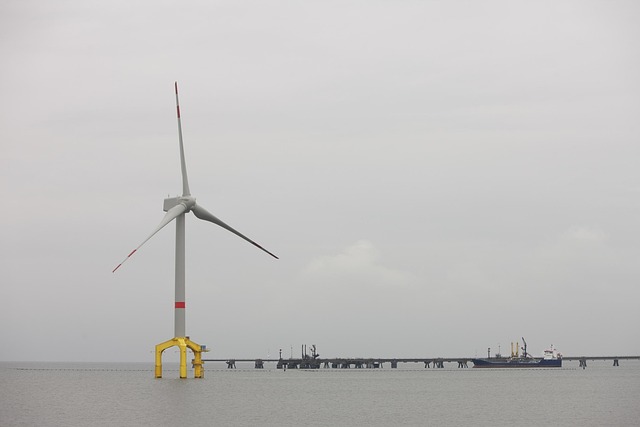Offshore tax planning strategically leverages global tax laws to build a secure financial future, minimizing tax burdens while staying within legal limits. By setting up structures in low-tax jurisdictions, individuals and businesses can reduce taxable income, protect assets, and access new markets. With professional guidance, this involves navigating complex regulations, adhering to boundaries, maintaining records, and staying informed about changes. A tailored offshore strategy offers significant tax savings, accelerates wealth growth, provides asset protection, and diversifies investments. Implementing these practices is crucial for Building A Secure Financial Future through effective offshore tax planning.
Building a secure financial future often involves strategic planning, and offshore tax planning is a powerful tool in that arsenal. This comprehensive guide explores how thoughtful utilization of global financial opportunities can fortify your wealth. From understanding the basics to navigating legal complexities and implementing practical steps, this article provides insights into creating a well-structured offshore strategy for long-term security. Discover the benefits and key considerations for building a robust financial future with offshore tax planning.
- Understanding Offshore Tax Planning: Unlocking Global Financial Opportunities
- The Benefits of a Well-Structured Offshore Strategy for Long-Term Wealth
- Key Considerations: Navigating Legal and Compliance Aspects
- Implementing Your Plan: Practical Steps for Securing Your Financial Future
Understanding Offshore Tax Planning: Unlocking Global Financial Opportunities

Offshore tax planning is a strategic approach designed to optimize your financial future by leveraging global tax laws. It’s about understanding how different jurisdictions offer various tax advantages and using them to your advantage while adhering to legal frameworks. This strategy isn’t about evading taxes but rather legally minimizing your tax burden, allowing you to build a more secure financial future.
By exploring offshore opportunities, individuals and businesses can unlock global financial possibilities. It involves setting up structures in low-tax or no-tax countries, such as offshore trusts, companies, or funds, which can help reduce taxable income, protect assets, and even provide access to new investment markets. However, it’s crucial to approach this with care and professional guidance, ensuring compliance with local and international regulations.
The Benefits of a Well-Structured Offshore Strategy for Long-Term Wealth

A well-structured offshore strategy, tailored for long-term wealth accumulation and preservation, offers numerous advantages when incorporated into a comprehensive financial plan. One of the primary benefits is significant tax savings. By strategically placing assets in jurisdictions with favorable tax laws, individuals can minimize their taxable income, effectively increasing after-tax disposable income. This, in turn, accelerates wealth growth over time.
Furthermore, offshore planning provides diversity and security. It allows investors to protect their assets from potential legal or political risks in their home countries. By diversifying investments across different global markets, one can mitigate the impact of economic fluctuations, ensuring a more stable financial future. This strategic approach is particularly valuable for building a secure foundation that supports long-term financial aspirations.
Key Considerations: Navigating Legal and Compliance Aspects

When considering building a secure financial future through offshore tax planning, it’s crucial to navigate the complex landscape with care. Legal and compliance aspects are key considerations that cannot be overlooked. Different jurisdictions have varying rules and regulations regarding offshore accounts, so understanding these nuances is essential for a successful strategy. Consulting with legal and financial experts who specialize in international tax laws can help ensure you stay within regulatory boundaries.
Compliance isn’t just about avoiding penalties; it’s also about protecting your assets and maintaining a solid financial foundation. Keeping detailed records, staying informed about changes in tax treaties and legislation, and ensuring proper reporting are critical steps. Remember, building a secure financial future requires not just strategic planning but also adherence to legal frameworks that govern offshore tax planning.
Implementing Your Plan: Practical Steps for Securing Your Financial Future

Implementing your offshore tax planning strategy is a crucial step in building a secure financial future. It requires careful action and consideration to ensure compliance with legal and regulatory requirements. Start by evaluating your current financial situation, identifying areas where tax optimization can be achieved, and selecting suitable offshore jurisdictions based on their favorable tax laws and policies. Next, establish robust record-keeping practices to maintain transparency and organize all relevant documents, ensuring easy accessibility for audits or reviews.
Engage the services of reputable professionals, such as tax advisors or lawyers specializing in international tax law, who can guide you through the complexities and ensure your plan is structured effectively. Regularly review and update your strategy to adapt to changing tax regulations and financial goals. By taking these practical steps, you’ll be well on your way to securing your financial future, minimizing tax liabilities, and leveraging offshore opportunities.
Building a secure financial future is within reach through strategic offshore tax planning. By understanding global financial opportunities, structuring a well-planned offshore strategy, and navigating legal aspects diligently, individuals can harness the benefits of long-term wealth preservation. Implementing practical steps ensures a robust plan that secures your financial destiny, offering peace of mind in today’s complex economic landscape. Embrace these strategies to take control and build a resilient financial future.















